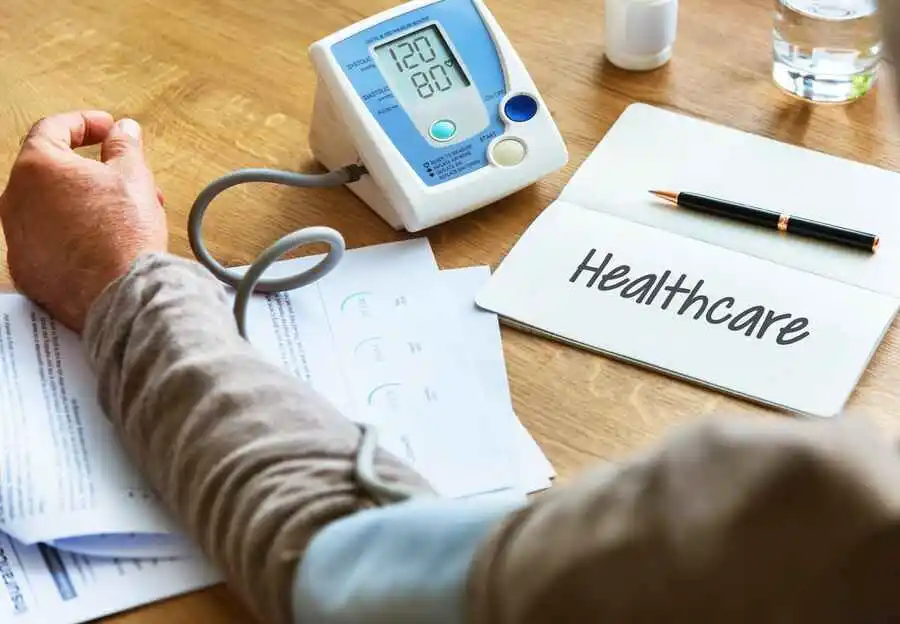How to Lower Blood Pressure: Effective Tips for a Healthy Life
It also known as hypertension, is a common health issue affecting millions of people worldwide. If left uncontrolled, it can lead to serious problems like heart attacks, strokes, and kidney disease. The good news is that you can take steps to lower blood pressure naturally and maintain a healthy lifestyle.
What is High Blood Pressure?
High blood pressure occurs when the force of blood against your artery walls is consistently too high. A normal blood pressure chart shows healthy readings around 120/80 mmHg. Anything above 140/90 mmHg is considered hypertension.
Understanding your blood pressure symptoms is essential. While high blood pressure is often called the “silent killer” due to its lack of noticeable symptoms, some people may experience:
- Headaches
- Dizziness
- Chest pain
- Vision problems
- Shortness of breath
Regular monitoring of your blood pressure is key to staying healthy.
How to Lower Blood Pressure Naturally
If you’re wondering how it’s possible, here are some proven methods to follow:
1. Follow a Blood Pressure Diet
Your food choices play a major role in managing hypertension. A heart-healthy blood pressure diet includes:
- Fresh fruits and vegetables
- Whole grains
- Lean proteins (chicken, fish, beans)
- Low-fat dairy products
- Foods rich in potassium and magnesium
Reduce your intake of salt, processed foods, and sugary drinks. The DASH (Dietary Approaches to Stop Hypertension) diet is an excellent option.
2. Exercise Regularly
Physical activity strengthens your heart and improves circulation. Aim for at least 30 minutes of moderate exercise most days of the week. Activities like walking, swimming, and cycling are effective blood pressure remedies.
3. Maintain a Healthy Weight
Being overweight increases your risk of high blood pressure. Losing just 5-10% of your body weight can make a big difference.
4. Limit Alcohol and Quit Smoking
Both smoking and excessive alcohol consumption raise it. Limiting these can significantly improve your overall health.
5. Reduce Stress
Chronic stress may contribute to hypertension. Try deep breathing exercises, meditation, and hobbies that help you relax.
6. Stay Hydrated
Drinking enough water helps maintain healthy blood circulation and prevent spikes.
When is Medication Needed?
Sometimes, lifestyle changes alone are not enough. Your doctor may prescribe medication to help manage your readings. Common types include:
- ACE inhibitors
- Beta-blockers
- Diuretics
- Calcium channel blockers
Always follow your doctor’s advice and never adjust your medication without consultation.
Understanding the Blood Pressure Chart
Knowing what your numbers mean is crucial. Here’s a simple breakdown:
| Category | Systolic (mmHg) | Diastolic (mmHg) |
|---|---|---|
| Normal | Less than 120 | Less than 80 |
| Elevated | 120-129 | Less than 80 |
| High Blood Pressure (Stage 1) | 130-139 | 80-89 |
| High Blood Pressure (Stage 2) | 140 or higher | 90 or higher |
| Hypertensive Crisis | Higher than 180 | Higher than 120 |
Check you regularly and consult your doctor if you notice high readings.
Best Blood Pressure Remedies
Along with lifestyle changes, some natural remedies include:
- Garlic supplements
- Omega-3 fatty acids (found in fish oil)
- Hibiscus tea
- Dark chocolate (in moderation)
- Magnesium-rich foods like spinach and almonds
However, always discuss supplements with your healthcare provider before adding them to your routine.
What is Normal Blood Pressure?
For most adults, normal blood pressure is below 120/80 mmHg. Keeping your numbers within this range reduces the risk of heart disease, stroke, and other serious health issues.
Conclusion
Managing high blood pressure doesn’t have to be difficult. By making small, consistent changes in your daily life, you can lower pressure, improve your well-being, and protect your heart.
Focus on healthy eating, regular exercise, and stress management. Monitor your readings, follow your doctor’s advice, and take proactive steps to live a healthier, happier life.
Frequently Asked Questions (FAQs)
1. What are the symptoms of high blood pressure?
Many people experience no symptoms, but common signs include headaches, dizziness, and chest pain.
2. How can I lower blood pressure quickly?
Reducing stress, deep breathing exercises, and drinking water can provide temporary relief. For long-term results, adopt a healthy lifestyle.
3. What foods help lower blood pressure?
Leafy greens, berries, whole grains, and low-fat dairy are excellent choices.
4. Can high blood pressure be cured?
Hypertension can often be managed with diet, exercise, and medication but requires ongoing care.
5. How often should I check my blood pressure?
At least once a month if you’re at risk or have hypertension. More frequent checks may be necessary based on your doctor’s advice.
🔔 Pro Tip: Stay consistent with your healthy habits. Small changes can lead to lasting results!
How to Remove Gas From Stomach Instantly
Experiencing gas in the stomach can be uncomfortable. To remove gas instantly, try natural remedies like drinking warm water with a pinch of baking soda to neutralize stomach acid. Ginger tea is another effective option as it soothes the digestive tract. Gentle exercises, such as walking or yoga poses like “wind-relieving pose,” help release trapped gas. Massaging your abdomen in a clockwise motion can stimulate digestion. Over-the-counter options like simethicone also provide quick relief. Avoid carbonated drinks and gas-causing foods like beans. These simple tips can provide instant comfort and help maintain a healthy digestive system.






[…] How to Lower Blood Pressure […]
[…] How to Lower Blood Pressure […]